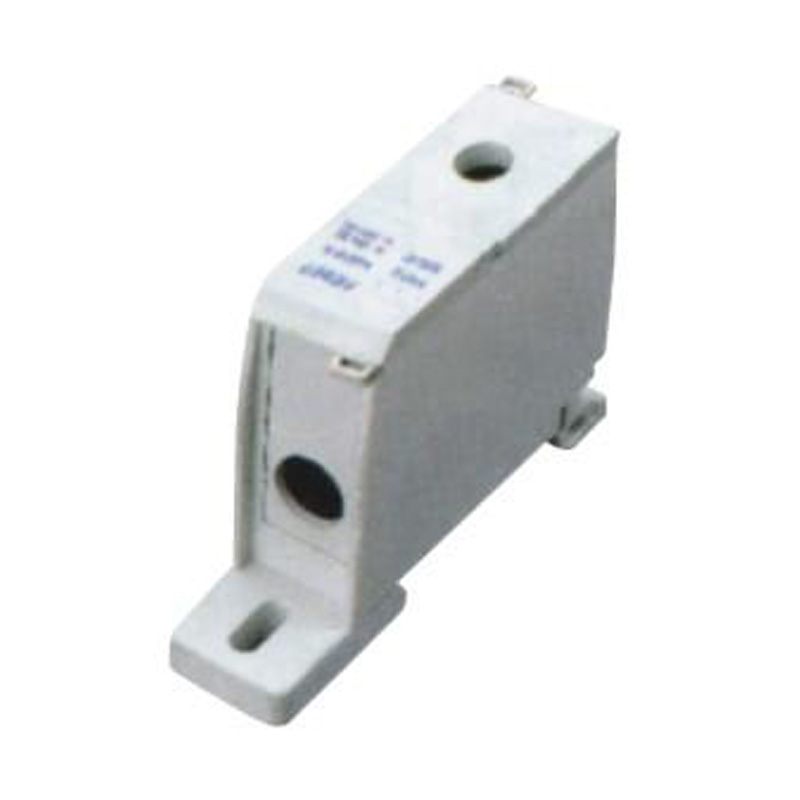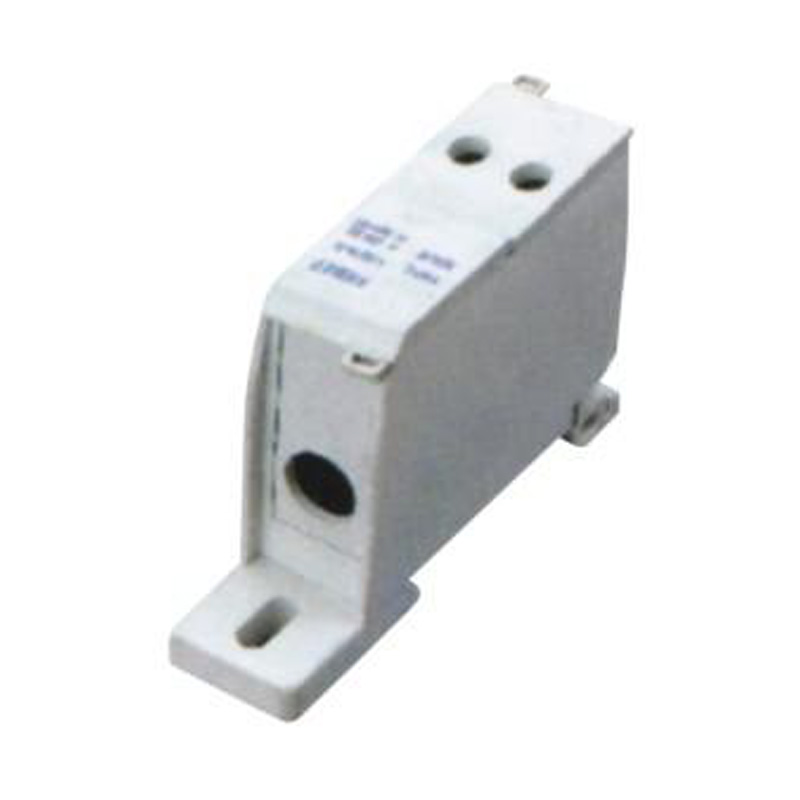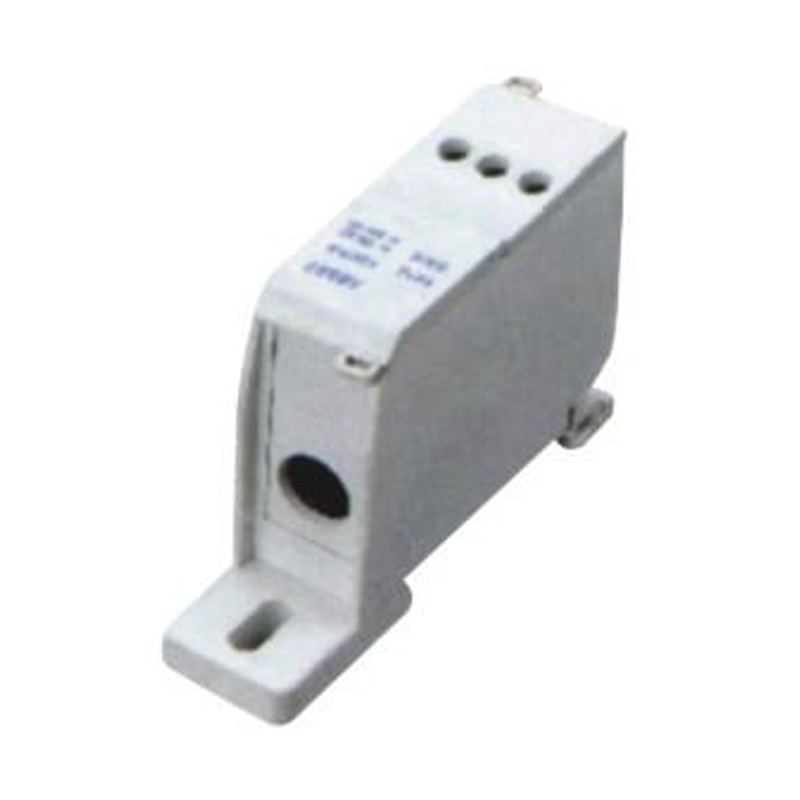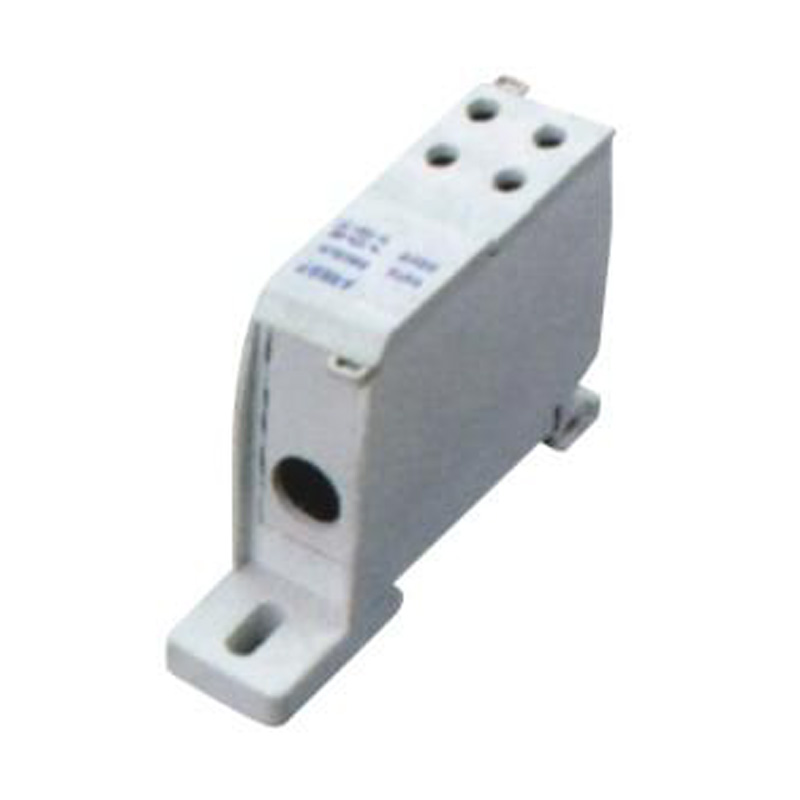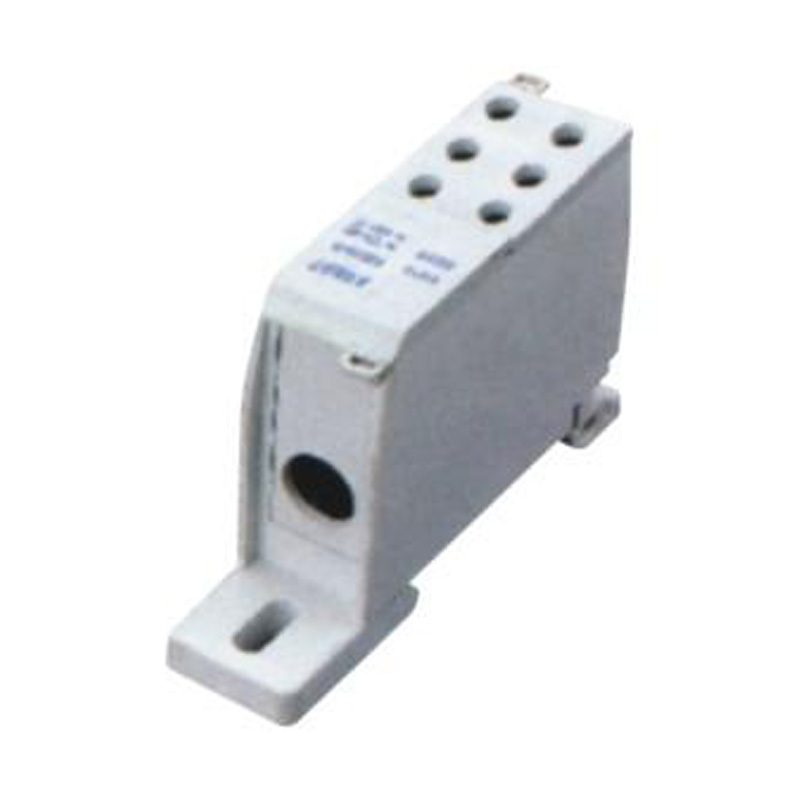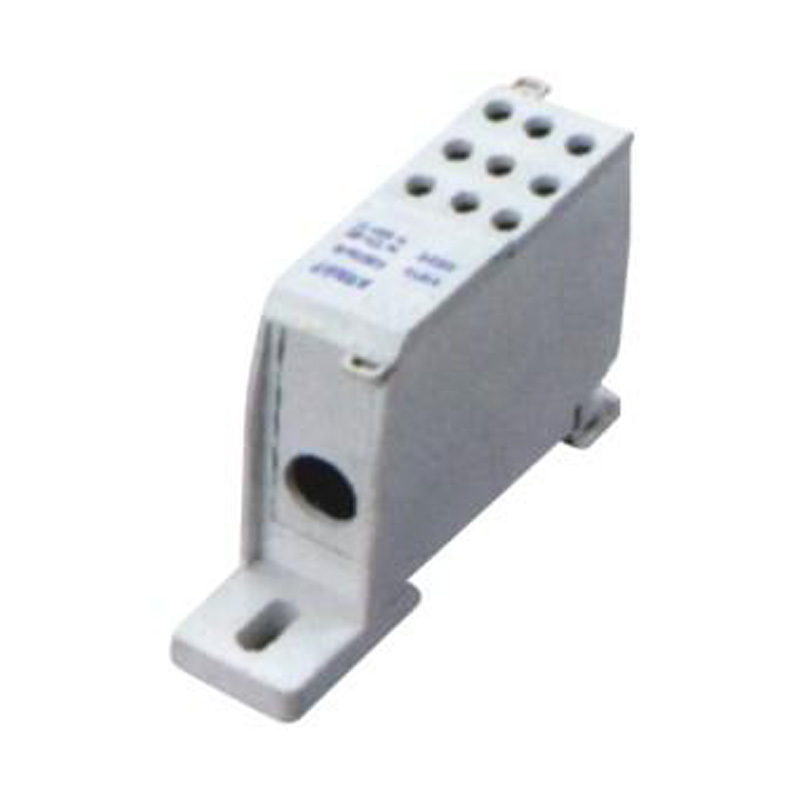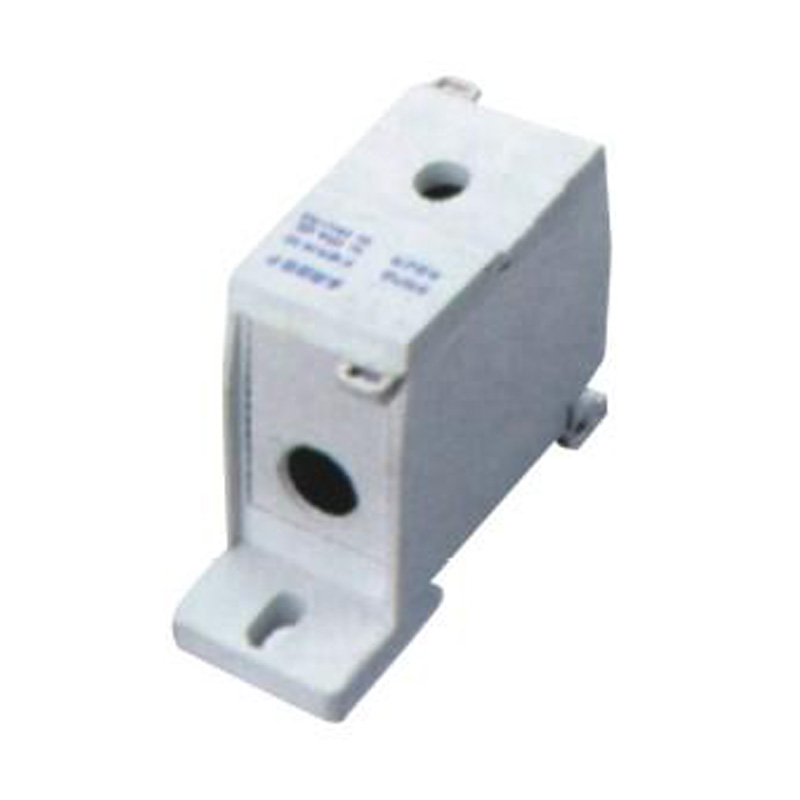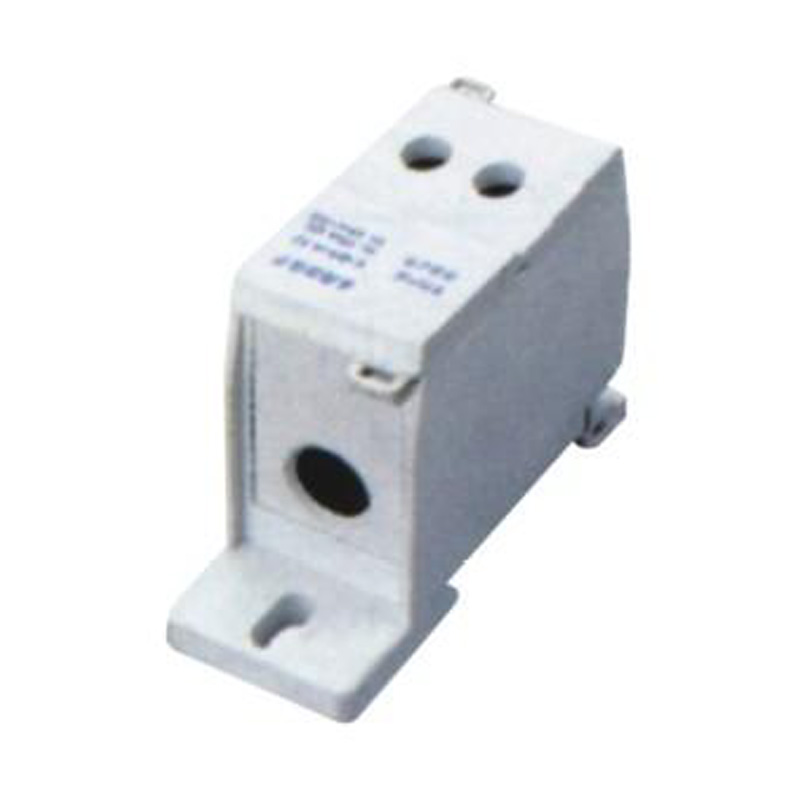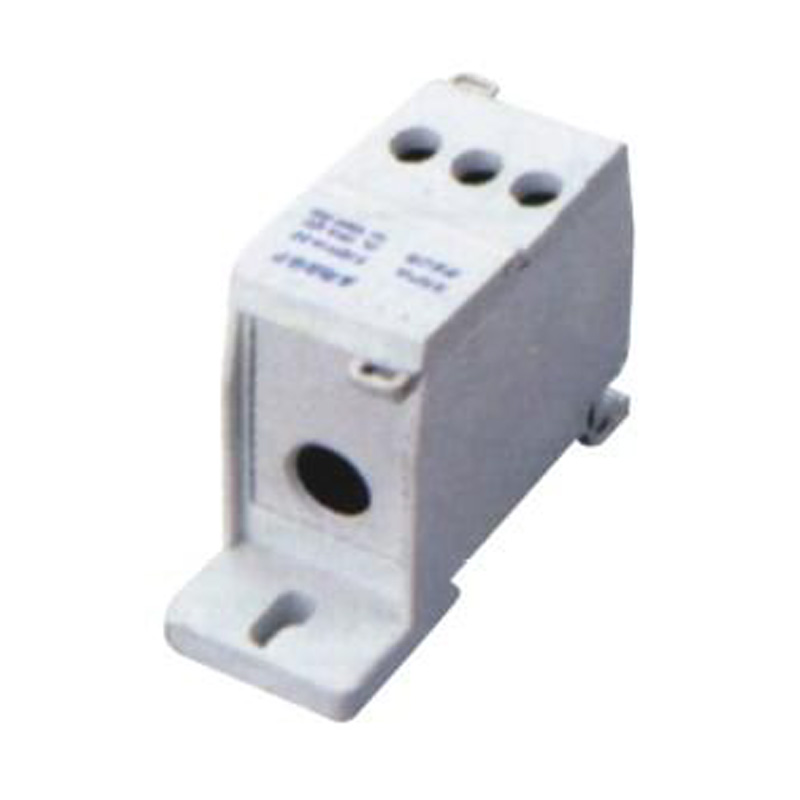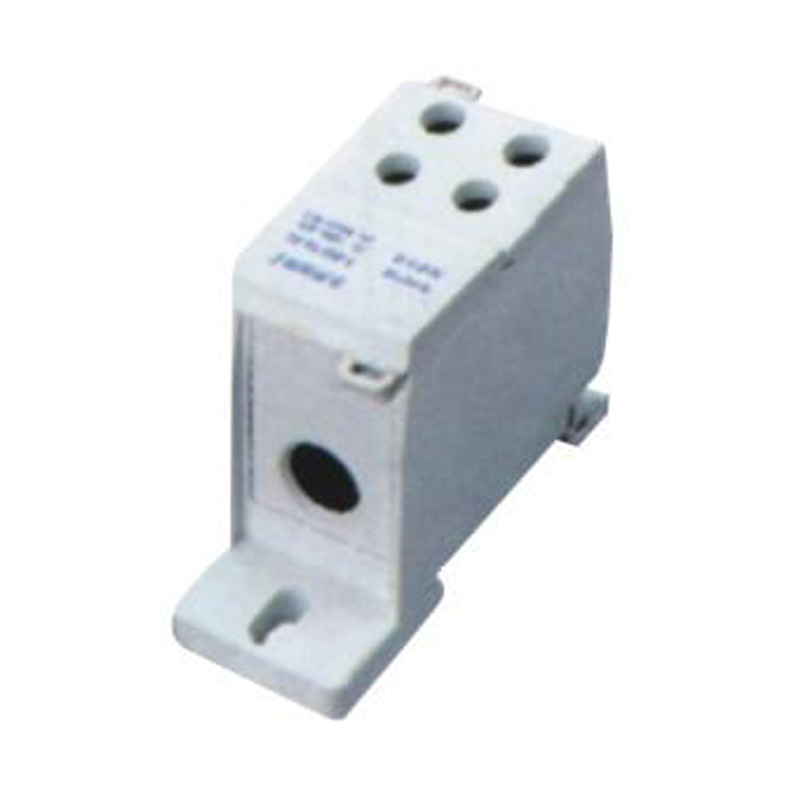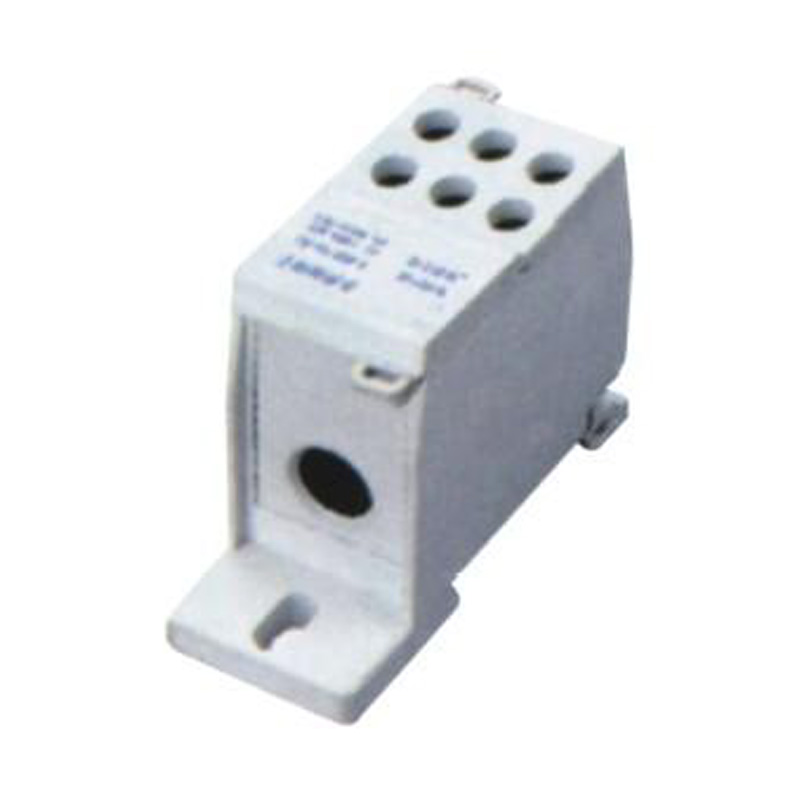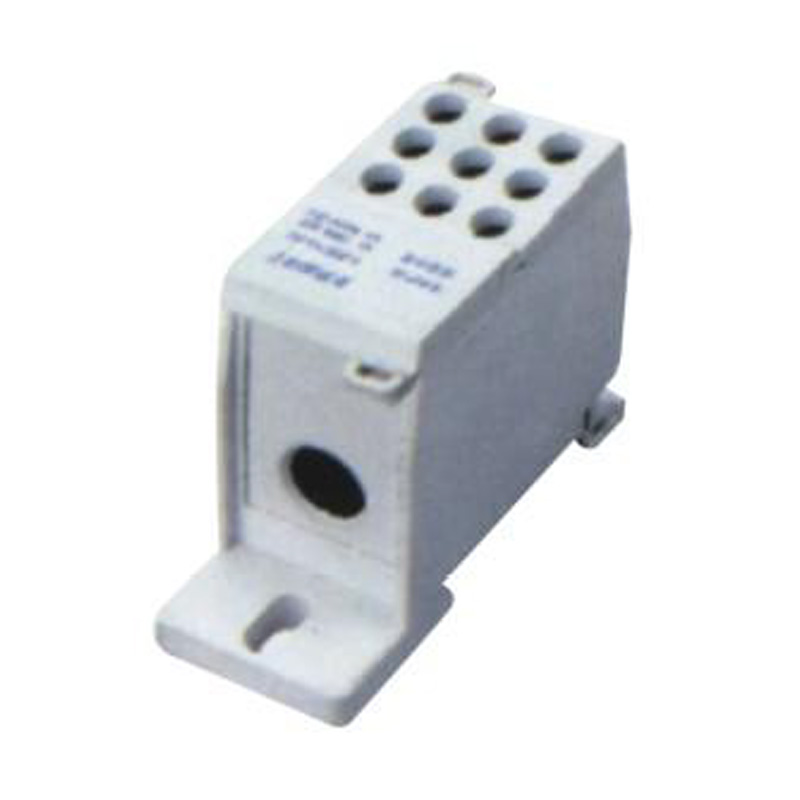In electrical systems, reliable terminations are just as crucial as the conductors themselves. Whether you are dealing with power ...
READ MOREDual-Mode Connection Electrical Terminal Manufacturer
The Dual-Mode Connection Electrical Terminals are designed for distribution wires in various types of electronic control distribution equipment, complete sets of devices, multi-circuit meter boxes and combined terminal electrical boxes. The product has a rated insulation voltage of 690V, a rated working voltage of 380V, and a maximum rated working current of 630A. The wire can be connected to the wire inlet end. The cross-section of the wire can be 6 square mm-185 square mm. The output end can be connected to the wire in a different number of connection loops and the wiring method. The product has a novel and unique structure, firm and reliable wiring, and is flexible and convenient to use. It is an ideal alternative product for busbar (busbar), grounding terminal, and neutral terminal in various electrical devices.
The Dual-Mode Connection Electrical Terminals are composed of conductors, insulating seats, and protective covers. The whole is composed of building block-type couplings. They are exquisite in concept, beautiful in appearance, and reliable in structure. The inlet end can either connect the wire directly (simple installation) or out of the 0T end (wire nose) for plate connection. The crimping screw is a high-strength tightening screw, and the bottom is a spherical shape. It does not damage the wire when pressing the wire, and it also has a large enough squeeze pressure on the wire, making the contact more reliable.
FJ6S-1/10-35/1x35 Elaborate Terminal Block
FJ6S-1/10-35/1x 35
One-inlet,one-outlet
Inlet wire:16-35mm²,outlet wire:10-35mm²
Order number:150626
FJ6S-1/10-35/2x25 Elaborate Terminal Block
FJ6S-1/10-35/2x25
One-inlet,two-outlet
Inlet wire:16-35mm²,outlet wire:6-25mm²
Order number:150627
FJ6S-1/10-35/3x10 Elaborate Terminal Block
FJ6S-1/10-35/3x10
One-inlet,three-outlet
Inlet wire:16-35mm², outlet wire:2.5-10mm²
Ordernumber:150628
FJ6S-1/10-35/4x10 Elaborate Terminal Block
FJ6S-1/10-35/4x10
One-inlet,four-outlet
Inlet wire:10-35mm², outlet wire:2.5-10mm²
Order number:150629
FJ6S-1/10-35/6x6 Elaborate Terminal Block
FJ6S-1/10-35/6x6
One-inlet,six-outlet
Inlet wire:10-35mm²,outlet wire:1.5-6mm²
Order number:150630
FJ6S-1/10-35/9x6 Elaborate Terminal Block
FJ6S-1/10-35/9x6
One-inlet,nine-outlet
Inlet wire:10-35mm²,outlet wire:1.5-6mm²
Order number:150631
FJ6S-1/16-50/1x50 Elaborate Terminal Block
FJ6S-1/16-50/1x50
One-inlet,one-outlet
Inlet wire:16-50mm²,outlet wire:16-50mm²
Order number:150632
FJ6S-1/16-50/2x35 Elaborate Terminal Block
FJ6S-1/16-50/2x35
One-inlet,two-outlet
Inlet wire:10-50mm²,outlet wire:10-35mm²
Order number:150633
FJ6S-1/16-50/3x25 Elaborate Terminal Block
FJ6S-1/16-50/3x25
One-inlet,three-outlet
Inlet wire:16-50mm², outlet wire:6-25mm²
Order number:150634
FJ6S-1/16-50/4x25 Elaborate Terminal Block
FJ6S-1/16-50/4 x 25
One-inlet,four-outlet
Inlet wire:16-50mm², outlet wire:6-25mm²
Order number:150635
FJ6S-1/16-50/6x16 Elaborate Terminal Block
FJ6S-1/16-50/6x16
One-inlet,six-outlet
Inlet wire:16-50mm²,outlet wire:6-16mm²
Order number:150636
FJ6S-1/16-50/9x10 Elaborate Terminal Block
FJ6S-1/16-50/9x10
One-inlet,nine-outlet
Inlet wire:16-50mm², outlet wire:2.5-10mm²
Ordernumber:150637
Search
Categories
-
Energy Measuring Terminal Block(314)
- Energy Measuring Joint Terminal Block(16)
- Polycarbonate Energy Measuring Terminal Block(24)
- Standard Wiring Energy Measuring Terminal Block(4)
- Transparent Shell Energy Measuring Terminal Block(6)
- Multifunctional Test Energy Measuring Terminal Block(10)
- Intelligent Safety Energy Measuring Terminal Block(6)
- Single-Phase Multi-Circuit Output Terminal Block(12)
- Self-Elevating Metering Box Terminal Block(7)
- One Household One-Meter Meter Box Dedicated Terminal Block(56)
- Three-Phase Metering Box Dedicated Terminal Block(24)
- Repeatable Grounding Line Terminal Block(20)
- Terminal Block for One-Inlet Multi-Outlet Metering Box(15)
- Closed Terminal Block(11)
- Heavy Current Terminal Block(48)
- Self-Boosting Terminal Block(5)
- Intelligent Self-Locking Terminal Block(3)
- Tool-Free Crimping Type Terminal Block(5)
- Wide Range of Wire Diameters Terminal Block(5)
- Combined Type Energy Measuring Terminal Block(37)
-
Switch Terminal Block(55)
- Pin-Type Incoming Line Switch Terminal Block(4)
- Multi-Way Connection Switch Terminal Block(4)
- Plug-pin Switch Terminal Block(7)
- Combined Type Switch Terminal Block(7)
- High Contact Cross Section Switch Terminal Block(7)
- Wide Range Switch Terminal Block(11)
- One Way in Switch Terminal Block(12)
- Equipped with Circuit Breaker Switch Terminal(3)
-
Heavy-current Terminal Block(631)
- Modular Building Block Terminal Block(156)
- Spherical Non-Destructive Crimp Terminal(120)
- Dual-Mode Connection Electrical Terminal(90)
- Anti-Electricity-Theft Terminal Block(74)
- Convenient Connection Terminal Block(12)
- High-Contact Section Terminal Block(12)
- Wide Range of Wire Diameters Neutral Line Terminal(9)
- Heavy-Current Neutral Line Terminal(9)
- Upper and Lower Rows of Neutral Terminal(2)
- Independent Neutral Line Terminal(7)
- Nose-Type Neutral Line Terminal(7)
- Rail Type Neutral Line Terminal(9)
- Fixed Neutral Line Terminal(12)
- Double Rail Assembly Electrical Terminal(19)
- Blue Jack-Up Terminal(6)
- Black Base Copper Bar Terminal(5)
- Compact Terminal Block(16)
- Precision Terminal Block(23)
- U-Shaped Harpoon Terminal(2)
- Grounding Metering Box Terminal Block(12)
- High-Performance Terminal Block(19)
- Multifunctional Terminal Block(10)
- Din Rail Terminal Block(76)
- Watt-hour Meter Connector(49)
-
Energy Meter Accessories(116)
-
-
When working with electrical systems, properly seating stranded wire in a cable lug or wire connector is essential for a secure an...
READ MORE -
Ensuring safety and reliability in electrical panels begins with selecting the Correct components. Terminal Blocks play a crucial ...
READ MORE -
Modern electrical control panels often face the challenge of accommodating a growing number of circuits within limited space. Term...
READ MORE -
Overheating and loose contacts in terminal blocks can compromise system safety and reliability. Proper installation, maintenance, ...
READ MORE -
Proper wiring and installation are essential when working with DIN Rail Terminal Blocks, ensuring both safety and efficient operat...
READ MORE
How Do I Wire a Dual-Mode Connection Electrical Terminal for Efficiency?
When it comes to wiring a dual-mode connection electrical terminal, efficiency is key. This involves understanding the terminal's design and ensuring that all connections are made correctly to optimize performance. Here are some straightforward steps to follow:
Understanding Dual-Mode Terminals: Dual-mode terminals can accommodate both wire insertion and screw-down connections. Recognize which type of connection your terminal requires for performance.
Proper Wiring Techniques: For wire insertion, ensure that the wire is stripped correctly and inserted fully into the terminal. For screw-down connections, tighten the screw securely but avoid overtightening, which can damage the terminal or the wire.
Compatibility Checks: Verify that the wires and terminals are compatible in terms of size and material to ensure a secure and efficient connection.
Using the Right Tools: Invest in good quality wire strippers and crimping tools to ensure clean, precise cuts and connections.
Regular Maintenance: Regularly check the terminals for any signs of wear or corrosion, which can affect the efficiency of the connection.
How Do I Insulate My 12-Volt Junction Block for Safety?
Safety is paramount when working with electrical systems, especially when dealing with low-voltage junction blocks. Insulating a 12-volt junction block is a crucial step to prevent electrical hazards. Here's how to do it safely:
- Choose the Right Insulation: Select insulation materials that are rated for at least 12 volts and are suitable for the environment in which the junction block will be installed.
- Wire Management: Organize the wires neatly before applying insulation. This not only makes the process easier but also reduces the risk of short circuits or damage to the wires.
- Apply Heat Shrink Tubing: Heat shrink tubing is a common and effective method of insulation. Slide the tubing over the wires, apply heat to shrink it into place, and ensure it provides a tight seal around the connections.
- Use Electrical Tape: For a quick and temporary solution, electrical tape can be used. Wrap the tape around the junction block, ensuring complete coverage and no exposed wires.
- Avoid Overlapping Wires: When insulating, make sure no wires overlap, as this can create a short circuit. Keep each wire insulated and separated from others.
- Regular Inspections: Insulation can degrade over time, so regular inspections are necessary to ensure the safety and integrity of the junction block.
Disadvantages of Using a Terminal Block with High Current
While terminal blocks are versatile and widely used in electrical systems, using them with high current loads can present several disadvantages. It's important to understand these potential issues to make informed decisions about your electrical setup:
Heat Generation: High current can cause significant heat generation in terminal blocks, which can loverheating. This can damage the terminal block and the connected wires, potentially causing a fire hazard.
Increased Stress on Connections: High current loads place more stress on the connections within the terminal block. This can loosening of connections over time, which can result in intermittent or failed connections.
Potential for Arcing: The higher the current, the greater the potential for arcing within the terminal block. Arcing can cause damage to the terminal block and pose a safety risk.
Reduced Lifespan: Terminal blocks subjected to high current over extended periods may have a reduced lifespan due to the increased wear and tear on the contacts.
Safety Concerns: The higher the current, the greater the risk of electrical shock. This is a significant safety concern, especially in environments where people are in close proximity to the terminal block.
Cost Considerations: High-current terminal blocks often require more robust construction, which can increase the cost. Additionally, the need for additional safety measures, such as heat sinks or cooling systems, can further increase costs.



 English
English Español
Español عربى
عربى